This article teaches about the biblical passages that Isaac Watts referred to when he wrote the poem that we now know as "Joy to the World."
Introduction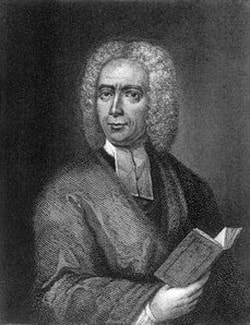 Isaac Watts (1674-1748) (Ref. 2) Isaac Watts (1674-1748) (Ref. 2)
In 1719, Isaac Watts published a poem about Psalm 98:4-9, Psalm 96:11-13, and Genesis 3:17-18. He titled the poem, The Messiah's Coming and Kingdom (Ref. 1, Ref. 2). Today we know that poem by the title, "Joy to the World," from the first line of the first verse:
"Joy to the World; the Lord is come! Let earth receive her King! Let ev'ry heart prepare Him room, And Heaven and nature sing." (Ref. 1) More than a century later, in 1836, Lowell Mason set the words of the poem, "Joy to the World," to music (Ref. 3). Musically, Mason borrowed the first four notes for his tune from the chorus, "Lift Up Your Heads," in Handel's Messiah (Ref. 1). As of the late 20th century, "Joy to the World" was the most-published Christmas hymn in North America" (Ref. 1). Scriptures for "Joy to the World"Psalm 98:4-9 KJV -- "Make a joyful noise unto the Lord, all the earth: make a loud noise, and rejoice, and sing praise. (5) Sing unto the Lord with the harp; with the harp, and the voice of a psalm. (6) With trumpets and sound of cornet make a joyful noise before the Lord, the King. (7) Let the sea roar, and the fulness thereof; the world, and they that dwell therein. (8) Let the floods clap their hands: let the hills be joyful together (9) Before the Lord; for he cometh to judge the earth: with righteousness shall he judge the world, and the people with equity."
Psalm 96:11-13 KJV -- "Let the heavens rejoice, and let the earth be glad; let the sea roar, and the fulness thereof. (12) Let the field be joyful, and all that is therein: then shall all the trees of the wood rejoice (13) Before the Lord: for he cometh, for he cometh to judge the earth: he shall judge the world with righteousness, and the people with his truth."
Genesis 3:17-19 KJV -- "And unto Adam he said, Because thou hast hearkened unto the voice of thy wife, and hast eaten of the tree, of which I commanded thee, saying, Thou shalt not eat of it: cursed is the ground for thy sake; in sorrow shalt thou eat of it all the days of thy life; (18) Thorns also and thistles shall it bring forth to thee; and thou shalt eat the herb of the field; (19) In the sweat of thy face shalt thou eat bread, till thou return unto the ground; for out of it wast thou taken: for dust thou art, and unto dust shalt thou return."
The beautiful carol, "Joy to the World," that we love to sing at Christmas actually is more about the second coming of Christ than the first (the incarnation - John 1:14). Psalm 98:4-9 and Psalm 96:11-13 glorify Christ's triumphant return at the end of the age. The Apostle Paul, writing after the first coming of Christ, tells us the whole creation still groans and is subject to corruption (including destruction and decay) (Romans 8:21-22, Ref. 4). The time still is in the future when the sea will roar in praise, the floods will clap their hands, and the "trees of the wood" will rejoice when Christ comes to judge the world (Psalm 98:7-9, Psalm 96:12-13). Verses 1 and 2 of "Joy to the World" look forward to this time of rejoicing.
When Christ comes again he will establish his reign upon the earth. He will judge (the Hebrew word means to act as law-giver, judge, governor) the world with righteousness, truth, and grace (Psalm 98:9, Psalm 96:13, John 1:14, Ref. 5). Verse 4 of "Joy to the World" expresses this truth.
Genesis 3:17-19 describes the curse that God announced to Adam after Adam had sinned by eating the fruit from the forbidden tree. This passage specifically mentions the curse on the ground, the sorrow that Adam (mankind) will have toiling the ground, and that the ground will grow thorns (Genesis 3:17-18). In Verse 3 of "Joy to the World," the hymn looks forward and says, "No more let sins and sorrows grow, nor thorns infest the ground." When Christ comes, he "will make his blessings flow ... far as the curse is found." We can receive Christ's blessings now and become free from the eternal curse of sin by putting our faith, confidence, and trust in him today (Ephesians 2:8-9, Romans 3:23-24, John 11:25-26).
Hymn Writer and Composers for "Joy to the World"Three different men from three different backgrounds have collaborated in mind and spirit to create the carol, "Joy to the World," that people have enjoyed for more than 180 Christmases. Isaac Watts (1674-1748) was an English Independent (Congregational) minister, theologian, and a prolific and popular hymn writer. Watts composed more than 700 hymns (Ref. 2). Many of his hymns remain in use today including "When I Survey the Wondrous Cross," "From All That Dwell Below the Skies," and "Marching to Zion" (Ref. 2). 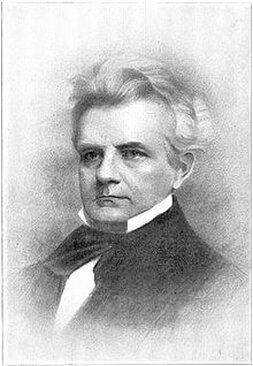 Lowell Mason (1792-1872) (Ref. 3) Lowell Mason (1792-1872) (Ref. 3)
Lowell Mason (1792-1872) was an American choir director, music educator, and composer in Boston and New York City (Ref.3). In 1836 he rearranged a section of Handel’s "Messiah" to fit the words of "Joy to the World." That familiar hymn tune we sing today for "Joy to the World" is named Antioch (Ref. 1). Lowell Mason also is known for his hymn tune, "Nearer, My God, to Thee," and for the melody he created for the nursery rhyme, "Mary Had a Little Lamb" (Ref.3).
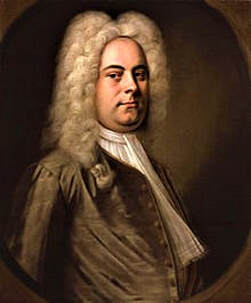 George Frideric Handel (1685-1759) (Ref. 6) George Frideric Handel (1685-1759) (Ref. 6)
George Frideric Handel (1685-1759) was a German, later British, Baroque composer who spent the bulk of his career in London (Ref. 6). Handel composed his masterpiece oratorio, Messiah, in 1741 (Ref. 7). Lowell Mason's Antioch tune for "Joy to the World" borrows the first four notes from the chorus, "Lift Up Your Heads," in Handel's Messiah (Ref. 1).
Even though Isaac Watts wrote "Joy to the World" about the second coming of Christ, "Joy to the world" applies to us today when we celebrate the first coming of Christ. First, our hearts are to "prepare him room" (Luke 2:7, Verse 1). Second, we are to celebrate the "wonders of his love" (Verse 4). The Bible tells us about God's wonderful love -- "God so loved the world that He gave His only begotten Son, that whoever believes in Him should not perish but have everlasting life" (John 3:16).
Consider
Have you prepared room in your heart for Jesus? (Luke 2:7) Have you received Jesus who came to save you and me from our sins? (Matthew 1:20-21) Are you prepared to meet Jesus Christ joyfully when he comes to judge the world? (Psalm 98:4, 9; Psalm 96:11, 13)
References
1. https://en.wikipedia.org/wiki/Joy_to_the_World 2. https://en.wikipedia.org/wiki/Isaac_Watts 3. https://en.wikipedia.org/wiki/Lowell_Mason 4. https://biblehub.com/greek/5356.htm 5. https://biblehub.com/hebrew/8199.htm 6. https://en.wikipedia.org/wiki/George_Frideric_Handel 7. https://en.wikipedia.org/wiki/Messiah_(Handel)
0 Comments
"And the angel said to them, 'Fear not, for behold, I bring you good news of great joy that will be for all the people. For unto you is born this day in the city of David a Savior, who is Christ the Lord.'" (Luke 2:10-11)
This article is the third in a series on the "'Fear Nots' of the Bible" (Ref. 1, Ref. 2). This article presents the "Fear not" angelic encounters with Zacharias, Mary, and the shepherds in Luke chapters 1 and 2.
Consider. Do you regard the announcement of the birth of Jesus as good news? If so, are you telling others? Are you rejoicing because you know Jesus as your Savior?
Introduction
Angels are active in both the Old Testament and New Testament scriptures. Angels bring announcements and special messages of encouragement from God to specific people.
In the New Testament, the Greek word for angel is aggelos. Aggelos means a messenger or delegate, someone sent by God to proclaim His message (Ref. 3). Matthew chapter 1 describes the first appearance of an angel in the New Testament. An angel of the Lord appears to Joseph in a dream, saying, "Joseph, thou son of David, fear not to take unto thee Mary thy wife: for that which is conceived in her is of the Holy Spirit" (Matthew 1:20). Supernatural angelic appearances to humans in the scriptures often, but not always, begin with "Fear not," also translated as "Do not fear" or "Do not be afraid" (Ref. 1, Ref. 2). The Angel Gabriel Appears to Zacharias
Luke 1:5-25 tells us about the angel Gabriel's appearance to the priest Zacharias and the angel's message foretelling the birth of John the Baptist.
When Gabriel appears to Zacharias in the temple, Zacharias is troubled and fearful (Luke 1:12). In Luke 1:13 NKJV, the angel's message to Zacharias has four main points: 1) "Do not be afraid" ("Fear not" in the KJV), 2) "Your prayer is heard," 3) "Your wife Elizabeth will bear you a son" and 4) "You shall call his name John." Gabriel tells Zacharias that John will be great in the sight of the Lord (Luke 1:15), will be filled with the Holy Spirit (Luke 1:15), will turn back many children of Israel to the Lord (Luke 1:16), and will go before the Lord (Luke 1:17). The angel Gabriel tells Zacharias that this message is good news, also translated as glad tidings (Luke 1:19 NASB, Luke 1:19 NKJV). The Greek word for good news and glad tidings is euaggelizó (Ref. 4). We will see the same word again in Luke 2:10. Scripture tells us that Zacharias and Elizabeth were righteous and blameless in following the Lord's commandments (Luke 1:5-6). However, Zacharias does not believe (have faith in, trust in) the angel's "good news" message (Luke 1:20, Ref. 5). Disbelief in God's message has consequences. Zacharias is not able to speak until the prophecy is fulfilled when John is born (Luke 1:57, 63). When his mouth is opened, Zacharias speaks and praises God (Luke 1:64). The Angel Gabriel Appears to Mary
Gabriel greets Mary with the words, "Rejoice, highly favored one, the Lord is with you; blessed are you among women!" (Luke 1:28) The Greek word for favored is charitoó, which means highly-favored because receptive to God's grace (Ref. 7).
The Scripture says, "Mary was greatly troubled at his words and wondered what kind of greeting this might be" (Luke 1:29). Unlike Zacharias (Luke 1:12), Mary was not terrified by the angel's appearance or presence. However, she was perplexed by what the angel meant by his greeting. The angel responds and tells her, "Fear not, Mary: for thou hast favour with God"(Luke 1:30 KJV).
Gabriel then states the substance of his message to Mary. "And behold, you will conceive in your womb and bring forth a Son, and shall call His name Jesus. He will be great, and will be called the Son of the Highest; and the Lord God will give Him the throne of His father David. And He will reign over the house of Jacob forever, and of His kingdom there will be no end" (Luke 1:31-33). Then Mary asks Gabriel a very interesting question - "How can this be, since I do not know a man?" (Luke 1:34) The Greek word for know in this verse is ginóskó, which means know through personal experience and in this context refers to sexual intimacy (Ref. 8). Mary did not doubt the angel's word. From her humility and modesty she wondered how her pregnancy could be effected in her virgin state (Ref. 9). The angel Gabriel replies and says, "The Holy Spirit will come upon you, and the power of the Highest will overshadow you; therefore, also, that Holy One who is to be born will be called the Son of God" (Luke 1:35). Gabriel also says, "For with God nothing will be impossible" (Luke 1:37). Mary then humbly speaks her assent and consent to the will of God. "Behold the maidservant of the Lord! Let it be to me according to your word" (Luke 1:38). The Greek word for Let it be is ginomai, which means come into being, happen, and become (Ref. 10). The angel then departs, having accomplished what he came for (Luke 1:38). The Angel Announces the Savior's Birth to the Shepherds “Fear not, for behold, I bring you good news of great joy that will be for all the people” (Luke 2:10) - LUMO Project - Used by Permission “Fear not, for behold, I bring you good news of great joy that will be for all the people” (Luke 2:10) - LUMO Project - Used by Permission
In Luke 2:8-14 the gospel writer describes the glorious announcement of the birth of the Savior. Previously, Luke had described the Angel Gabriel's message to Mary about the conception of Jesus, the Son of God (Luke 1:26-38). In the verses immediately before the angel's announcement to the shepherds (Luke 2:1-7), the gospel account informs us that Joseph and Mary had traveled from Nazareth to Bethlehem, and that her Son now was born.
The Scripture tells us that an angel (name not identified) suddenly stands before shepherds who were outside Bethlehem at night (Luke 2:8-9). The scripture states "And the glory of the Lord shone around them" (Luke 2:9, italics added). The brilliant glory of the Lord around the shepherds during the angel's announcement is unique compared to the appearance of Gabriel to Zacharias in Luke 1:8-25 and to Mary in Luke 1:26-38. The Apostle Paul reports a similar encounter with bright light around himself and his traveling companions on the way to Damascus (Acts 26:13).
The shepherds "feared with a great fear" at the angel's sudden appearance (Luke 2:9 DRA). The King James Version famously says "they were sore afraid" (Luke 2:9 KJV).
The angel tells the shepherds, "Fear not" (Luke 2:10). Yes, the appearance of the angel was supernatural; however, the angel's message about the birth of Christ is good news, not bad news. "For behold, I bring you good news of great joy that will be for all the people. For unto you is born this day in the city of David a Savior, who is Christ the Lord" (Luke 2:10-11). The Greek verb for bring good news is euaggelizó which also is translated as bring good tidings (Ref. 4).
The Greek word for Savior in Luke 2:11 is sótér, which means savior, deliverer, preserver (Strong's Concordance, Ref. 11). Jesus Christ is our Savior because he "saves believers from their sins and delivers them into His safety" (HELPS Word-studies, Ref. 11, 1 John 4:14, 1 Timothy 1:15, Luke 19:10).
The shepherds considered the angel's message, and then they went with haste, without delay to see the Savior themselves (Luke 2:15-16). After they had seen Jesus, they told others the good news about Jesus (Luke 2:17). Then the shepherds returned, "glorifying and praising God for all they had heard and seen" (Luke 2:20).
Apply. Like the shepherds, have you accepted the good news of the Savior for yourself? If not, then believe that he is the Son of God as described in the scriptures, and ask him to forgive your sins. Then go on your way rejoicing and tell others the good news about Jesus.
References
1. http://www.scriptureway.com/home/fear-nots-of-the-old-testament 2. http://www.scriptureway.com/home/fear-nots-of-jesus 3. https://biblehub.com/greek/32.htm 4. https://biblehub.com/greek/2097.htm 5. https://biblehub.com/greek/4100.htm 6. https://biblehub.com/greek/3933.htm 7. https://biblehub.com/greek/5487.htm 8. https://biblehub.com/greek/1097.htm 9. https://biblehub.com/commentaries/benson/luke/1.htm 10. https://biblehub.com/greek/1096.htm 11. https://biblehub.com/greek/4990.htm
"Joseph also went up from Galilee, from the city of Nazareth, to Judea, to the city of David which is called Bethlehem, because he was of the house and family of David, in order to register along with Mary, who was engaged to him, and was with child" (Luke 2:4). This article explores the story behind and the scripture allusions in the hymn, "Once in Royal David's City." Hymn Text Writer Cecil Frances Alexander (1818-1895) was an Anglo-Irish hymnodist and poet. Mrs. Alexander's hymns and poems though her lifetime number nearly 400 (Ref. 2). She is best known for her hymns, "All Things Bright and Beautiful," There is a Green Hill Far Away," and the Christmas carol, "Once in Royal David's City" (Ref. 3). As an adult, Cecil Frances Alexander wrote primarily for children. She felt that the truths of Christianity could best be taught through hymns (Ref. 4 below). In 1848, Cecil Frances Humphreys (her name before she married) wrote a series of hymns to teach children about the Apostles Creed (Ref. 4, Ref. 5). She wrote "Once in Royal David's City" to explain to children the phrase from the Apostle's Creed that Jesus Christ was conceived by the Holy Ghost and born of the Virgin Mary (Luke 1:34-35 KJV, Ref. 4, Ref. 5). Hymn Tune Composer Henry John Gauntlett (1805-1876) was an English organist and songwriter (Ref. 6). He was also, in turn, a lawyer, author, organ designer, and organ recitalist (Ref. 7). He composed over 1,000 hymn tunes. His most famous tune is "Irby," the tune to which we sing the Christmas carol, "Once in Royal David's City" (Ref. 6). Scripture Allusions I suggest that you refer to the attached hymn sheet music (Ref. 8) for the following discussion of Scripture and the four verses of hymn text. "Once in royal David's city" (hymn, verse 1). In the Bible, the words, "city of David," refer to two locations. In the Old Testament, the city of David referred to the area of Jerusalem that David captured as described in 1 Chronicles 11:4-8. David built houses there and lived there (1 Chronicles 15:1). David was buried in the city of David (1 Kings 2:10). In the New Testament, Luke refers to David's ancestral home, Bethlehem, as the city of David (Luke 2:4, 1 Samuel 17:12). Luke also tells what the angel said when the angel appeared to the shepherds and announced Jesus' birth. "For today in the city of David there has been born for you a Savior, who is Christ the Lord" (Luke 2:11). After the angel had spoken to the shepherds, the shepherds were clear that the location they were to go visit was in Bethlehem (Luke 2:15). "He came down to earth from heaven who is God and Lord of all" (hymn, verse 2). The words, "He came down to earth from heaven" refer to the incarnation of Christ. The Gospel of John says, "And the Word became flesh, and dwelt among us, and we saw His glory, glory as of the only begotten from the Father, full of grace and truth" (John 1:14). "He feels for all our sadness, and he shares in all our gladness" (hymn, verse 3). Jesus was fully God and fully human (John 1:1, John 1:14, Colossians 2:9, Ref. 9). As a human being, Jesus experienced the full range of human emotions, yet without sin (Hebrews 4:15-16). For example, Jesus knew grief and sorrow (Isaiah 53:3, John 11:33-35). Jesus knew joy (Hebrews 12:2). "He leads his children on to the place where he has gone" (hymn, verse 4). Jesus said, "Truly I say to you, whoever does not receive the kingdom of God like a child will not enter it at all" (Luke 18:17). The Gospel of John tells us, "But to all who believed him and accepted him, he gave the right to become children of God" (John 1:12). The hymn's words, "He leads his children," speak to me both of Jesus leading and we who believe in Jesus Christ following him (Ref. 10). Jesus said, "I am the way, and the truth, and the life; no one comes to the Father but through Me" (John 14:6). We know that Jesus has gone to prepare a place for us in heaven (John 14:2-3). Once we put our trust in Jesus Christ, he leads us and we follow him through life to his eternal home. Listen Listen and watch The Choir of King's College, Cambridge, UK sing "Once in Royal David's City." Click here for the YouTube link - Ref. 11. To see and follow the lyrics for the six verses sung in the video, click here - Ref. 12. Prayer Thank you, Jesus, for coming down from heaven to earth to become a human being. Thank you, Jesus, that you know our emotions and that you strengthen us when we are weak. Thank you, Jesus, that when we believe in and accept you, you lead us through life to your eternal home. References
1. http://www.hymntime.com/tch/htm/o/n/c/onceirdc.htm 2. https://hymnary.org/person/Alexander_CF 3. https://en.wikipedia.org/wiki/Cecil_Frances_Alexander 4. Robert K. Brown, Mark R. Norton, "The One Year Book of Hymns," Tyndale House Publishers, Inc., 1995 5. http://www.paperlesshymnal.com/tph/stories/cfalexander/ 6. https://en.wikipedia.org/wiki/Henry_Gauntlett 7. http://www.hymntime.com/tch/bio/g/a/u/gauntlett_hj.htm 8. https://hymnary.org/text/once_in_royal_davids_city_stood_a_lowly 9. http://www.ScriptureWay.com/home/who-is-jesus 10. http://www.ScriptureWay.com/home/jesus-is-the-way-to-heaven 11. https://www.youtube.com/watch?v=X1QZBnWY4F0 12. (the link begins on the next line) https://www.hymnsandcarolsofchristmas.com/Hymns_and_Carols/once_in_royal_davids_city.htm |
Daily Bible Verse(Click the link above) AuthorMr. Whitney V. Myers. Christian. For more information, please visit the Author Page. Posting ScheduleI plan to provide new postings about once a month. Planned Topics(subject to change) Recent Posts(most recent three months) Popular Posts(top 10) Categories
All
Archives
July 2024
|
|
Copyright 2018-2024 Whitney V. Myers |
Listed in Feedspot's Top 100 Bible Study Blogs and Websites |
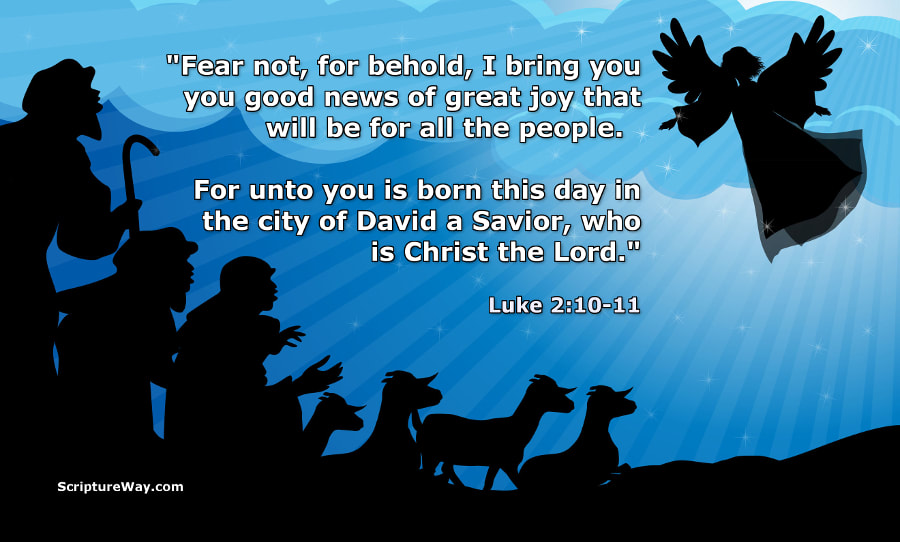
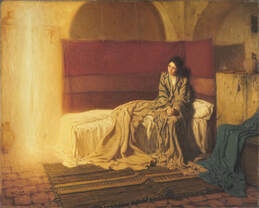
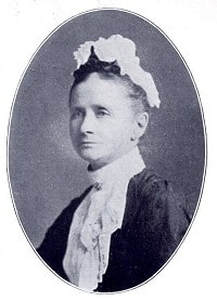
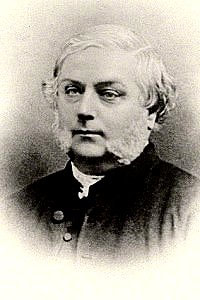
 RSS Feed
RSS Feed
